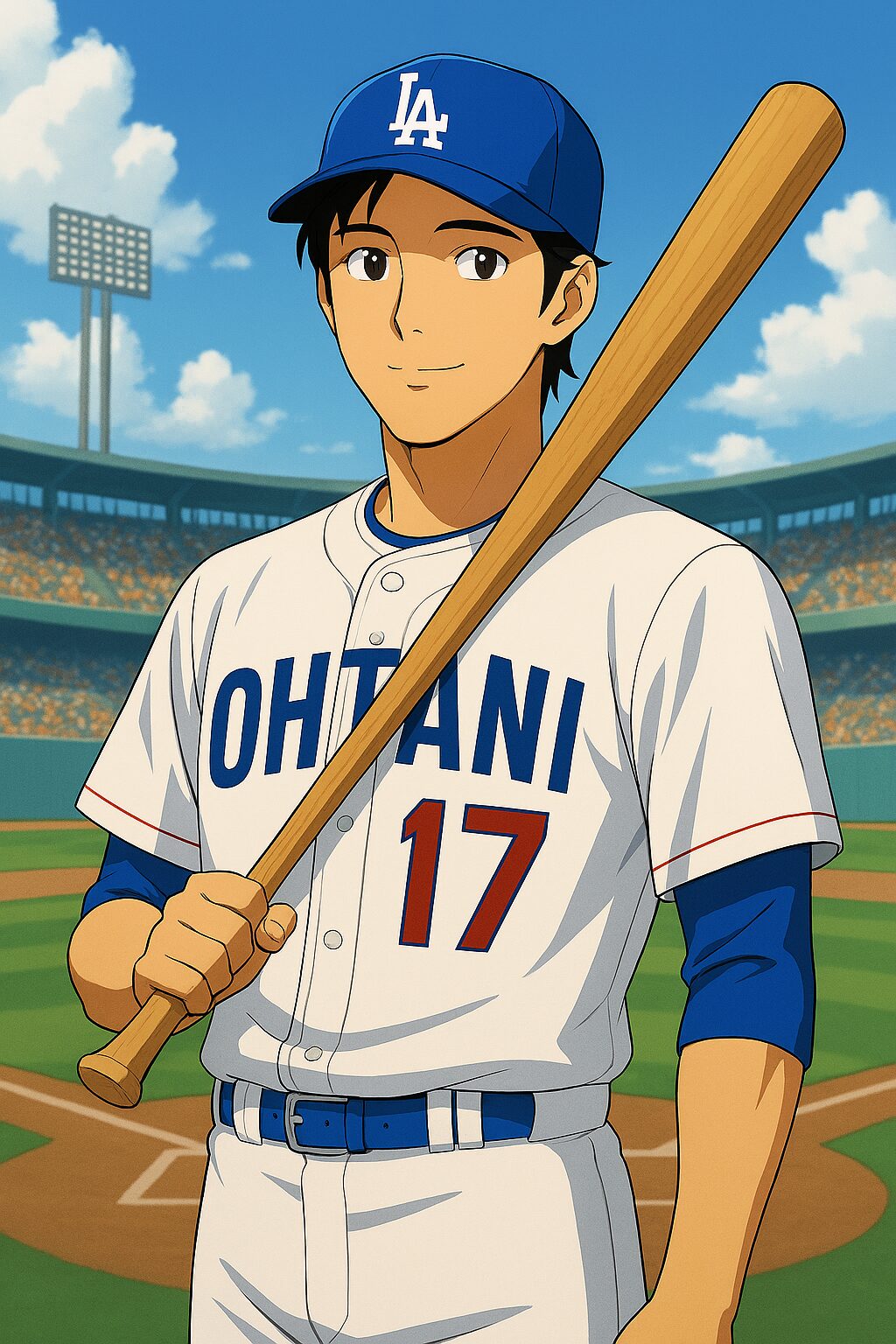Baseball may be synonymous with the United States for many, but in Japan, it’s woven into the very fabric of everyday life. From fevered high school tournaments to family catch sessions at sunset, baseball is more than just a sport—it’s a cultural thread that binds generations. And today, that thread stretches across borders, thanks in part to one exceptional athlete: Shohei Ohtani.
This article explores how Japan’s baseball culture developed, why Shohei Ohtani rose to prominence in such an environment, and how his career is transforming the global perception of the sport. It’s a story about talent, yes—but also about philosophy, silence, and the values that shape a star before the world ever sees their light.
- 🏟️ Koshien: Japan’s Field of Dreams
- ⚾ Pro Baseball in Japan: Rituals, Rivalries, and Regional Bonds
- 🌍 Shohei Ohtani: The Quiet Supernova Who Connects Cultures
- 🌐 Baseball Worldwide: A Growing Global Language
- 📋 Why Did Shohei Ohtani Emerge from Japan? A Cultural Inquiry
- 🎯 Final Reflection: More Than Baseball
🏟️ Koshien: Japan’s Field of Dreams
Twice a year, all eyes in Japan turn to Koshien Stadium for the spring and summer National High School Baseball Championship. These tournaments represent more than competition—they’re rites of passage.
When a rural school qualifies for the first time, small towns mobilize. Storefronts display banners, elderly neighbors recite alumni stories, and even casual observers tune in. Players cry during the school anthem, and the audience cries with them. It’s not just sport—it’s soul, pride, and regional identity all packed into nine innings.
⚾ Pro Baseball in Japan: Rituals, Rivalries, and Regional Bonds
Japan’s pro leagues—Central and Pacific—offer a unique flavor of baseball. Teams like the Hiroshima Carp are deeply embedded into local culture, influencing community mood and even business rhythms.
Stadium experiences feel more like festivals:
- 🎺 Live brass bands play team anthems
- 🎈 Fans release jet balloons after victories
- 🍢 Grilled snacks and regional specialties fill the food stalls
Each game is a collective emotional release, equal parts sport and ceremony.
🌍 Shohei Ohtani: The Quiet Supernova Who Connects Cultures
Shohei Ohtani’s dual prowess as pitcher and slugger has redefined expectations—not just in America’s MLB, but worldwide.
- He throws 100+ mph fastballs and hits towering home runs
- His calm demeanor and silent focus speak volumes about Japanese values
- He’s respectfully dubbed “The Babe Ruth of Japan” but often exceeds even that legacy
In Europe, kids watch his highlights and pick up gloves. In Nepal and Uganda, grassroots programs feature his image on posters. Shohei doesn’t just inspire athletes—he bridges cultures.
If you’re interested in understanding how silence and subtle gestures form the core of Japanese expression, this article expands beautifully on those values: 🔗 The Aesthetics of Silence: How Rei and Ma Shape Japan’s Wordless Communication
🌐 Baseball Worldwide: A Growing Global Language
Once seen as America’s pastime, baseball is now a global game:
- 🇩🇴 Dominican Republic and 🇨🇺 Cuba: legendary talent pipelines
- 🇳🇱 Netherlands and 🇮🇹 Italy: emerging European contenders
- 🇳🇵 Nepal and 🇺🇬 Uganda: developing nations with local baseball dreams
Ohtani’s presence accelerates this globalization. His games are broadcast internationally, his merchandise reaches classrooms across continents, and his humility resonates with diverse cultural audiences.
📋 Why Did Shohei Ohtani Emerge from Japan? A Cultural Inquiry
Ohtani is not simply a natural talent—he is the product of a philosophical system.
🏡 Family and Early Education
- His parents were athletes who emphasized enjoyment over pressure
- He was never forced into rigid drills; play was sacred
- Gratitude, respect, and autonomy were encouraged from childhood
🎯 Goal-Setting through Personal Philosophy
As a teen, he designed a “Path to Success” chart centered around being drafted first. But the surrounding steps included:
- Greeting others politely
- Cleaning his surroundings
- Staying humble and focused
This mindset shaped him as much as batting practice did.
🧘 Japanese Ideals: Discipline and Grace
Japan’s emphasis on “Rei” (respect) and “Ma” (space/silence) supports athletes who carry themselves with dignity and restraint. Ohtani’s behavior—no boasting, no outbursts—is often viewed as un-American by Western commentators, but it deeply resonates with Japanese audiences.
⚖️ Blending Structure and Creativity
In Japan, form and repetition are vital. But Ohtani dared to express individuality within that framework. His two-way ambition was nurtured by mentors willing to trust his vision, proving that traditional systems can evolve to support modern dreams.
🎯 Final Reflection: More Than Baseball
Shohei Ohtani stands as a testament to how sports can become vessels for philosophy, humility, and connection. From the dusty diamonds of local high schools to the gleaming stadiums of Los Angeles, his journey affirms that greatness is rarely accidental—it’s a symphony of environment, discipline, and purpose.
As baseball continues to globalize, Japan offers more than just players—it offers meaning. In the quiet pauses between pitches, in the practiced bows before games, and in the long echoes of a bat meeting ball, one hears a distinct rhythm: the beating heart of a culture that values excellence not just in result, but in process.



コメント